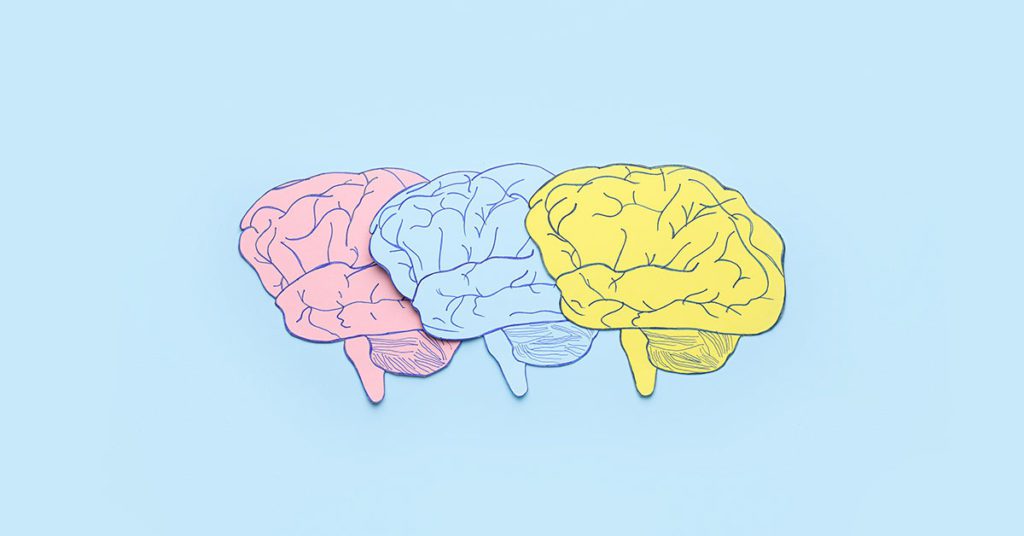Most people see the doctor for an annual exam to check their blood or their blood pressure. But how often do you see a neurologist to check on your brain health? A cognoscopy, developed by Dr. Dale Bredesen, screens for early signs of Alzheimer’s disease. It’s a step that can greatly lower your risk of cognitive decline caused by the disease. Find out more about a cognoscopy and whether you should include it in your annual health routine.
Dr. Dale Bredesen and The End of Alzheimer’s
Close to 75 million Americans live with Alzheimer’s disease, a number expected to rise in the next thirty years. This debilitating brain disorder affects every part of life. It slowly causes brain cells to atrophy, destroying a person’s memory and thinking skills.
World-renowned neurologist, Dr. Dale Bredesen has spent the last three decades working with thousands of Alzheimer’s patients. In his groundbreaking book The End of Alzheimer’s, Dr. Bredesen developed the first program to reverse and treat the disease, called the ReCODE Protocol (REversal of COgnitive DEcline).
Dr. Bredesen has concluded that Alzheimer’s can be a rare disease that only a few people get—if they take the right steps. He identified 36 causes of Alzheimer’s. For example, someone who carries a gene variant called APOE4 has an increased 30% lifetime risk of Alzheimer’s with one gene, and 50% to 90% if carrying two copies from both parents.
Factors that may lead to Alzheimer’s include:
- Inflammation
- Blood sugar imbalance
- Imbalance of neurotrophic factors, or “building blocks” for the brain
- Heavy metal or mold exposure
- Poor blood flow
- Physical trauma
- Presence of the APOE4 gene
Addressing causes of Alzheimer’s can help with the effective diagnosis and build a customized treatment of the disease.
What Is a Cognoscopy Test?
Developed by Dr. Bredesen, a cognoscopy can help identify the root causes or risk factors for Alzheimer’s disease, making it easier to treat or prevent. It also provides short-term screening to help detect memory problems in patients.
What Does a Cognoscopy Cost?
Dr. Bredesen recommends a cognoscopy as the first step to monitor brain health and screen for early signs of Alzheimer’s. The exam involves a combination of blood work, genetic tests, and a cognitive assessment to identify the potential to develop Alzheimer’s. Costs of these tests can vary, depending on factors like your insurance coverage or residence.
- Blood tests: A series of blood tests will check for hormonal imbalance, toxicity levels, nutrition adequacy, and genetic risks.
- A Hormone Lab Panel can cost around $449.
- Hair and toxic element exposure profile can cost $198.
- Gut Function/Leaky Gut assessment may cost around $259.
- A nutrient lab panel can cost $499.
- An APOE Alzheimer’s Risk Panel can cost around $300.
- Cognitive function testing: A free cognitive assessment provides a baseline and helps monitor your brain function for any future areas of decline.
- Medical history: A complete profile of your medical history helps track health and current medications.
- MRI: A brain scan will assess current health and any potential areas of concern. An MRI in the US can cost between $1,600 and $8,400.
When Should I Get a Cognoscopy?
Dr. Bredesen recommends that everyone starts getting a cognoscopy once they’re over the age of 45. Research suggests that between 40-65% of people diagnosed with Alzheimer’s have a genetic predisposition, and therefore, people related to someone with the disease should especially get a cognoscopy. That said, family history is not necessary for an individual to develop Alzheimer’s.
Mild symptoms of Alzheimer’s can develop as early as twenty years before the disease progresses. A sudden change in your memory, like forgetting things easily, brain fog, or getting lost in a conversation, could indicate early signs of Alzheimer’s. Recognizing these early on, you can take the necessary steps to prevent the disease from getting worse. And, a cognoscopy can help pinpoint those specific areas of potential concern for brain health.
A cognoscopy reveals specific reasons for cognitive decline in a patient. Then, a neurologist can create a tailor-made treatment plan to prevent or even reverse Alzheimer’s symptoms from worsening. Treatments can include things like taking brain-healthy supplements, eating a nutritious diet, getting more sleep, eliminating toxins, reducing inflammation, or managing stress.
Research has unlocked information that could finally bring an end to Alzheimer’s. Dr. Dale Bredesen has successfully pinpointed the steps we can take now to prevent the illness from developing in the future. If you’re over the age of 45, you can lower your risk of Alzheimer’s by including a cognoscopy in your wellness routine. It’s a step worth taking to prevent the disease from affecting you or a loved one.
Related reading:





